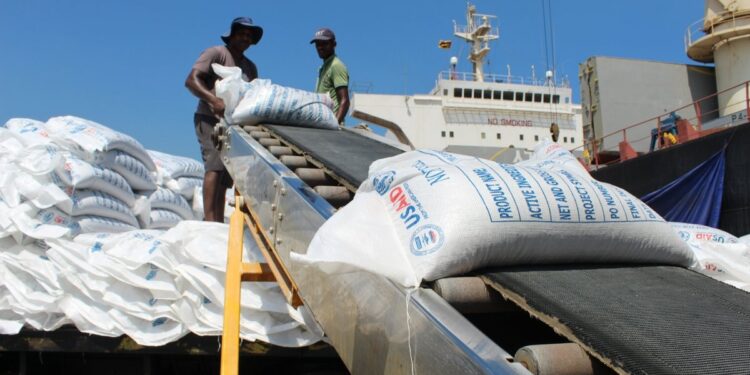The United States through US Agency for International Development (USAID) has uncovered that food aid, intended for the people of Tigray suffering under famine-like conditions, was being diverted and sold on the local market in Ethiopia.
USAID Administrator, Samantha Power who disclosed this is a statement on Wednesday, announced that due to this act a difficult decision was made pause all USAID-supported food assistance in the Tigray region until further notice.
According to her, “Immediately after this discovery, USAID referred the matter to USAID’s Office of the Inspector General, which began an investigation.

“We also launched a thorough review of our programs, and as part of the investigation, deployed senior leadership from our Bureau for Humanitarian Assistance to Ethiopia to conduct further assessments.
“Following this review, USAID determined, in coordination with the U.S. Embassy in Addis Ababa and our implementing partners, that a temporary pause in food aid was the best course of action”, she said.
Power stressed that United States is the largest humanitarian donor to Ethiopia, and we remain committed to the Ethiopian people.

“The U.S. government has raised its concerns with officials from both the Ethiopian federal government and the Tigray Interim Regional Administration.
“Both federal and regional authorities in Ethiopia have expressed their willingness to work with us to identify those responsible and to hold them accountable.
“USAID stands ready to restart paused food assistance only when strong oversight measures are in place and we are confident that assistance will reach the intended vulnerable populations”, she added.

Power noted that the diversion has dealt yet another blow to innocent civilians suffering needlessly due to the recent conflict in northern Ethiopia, where millions of people are experiencing acute food insecurity.
“While food aid to the Tigray Region is paused, other vital assistance not implicated in the diversion scheme will continue, including life-saving nutritional supplements, safe drinking water, and support for agricultural activities and development.
“As a responsible humanitarian donor accountable to U.S. taxpayers, USAID institutes robust oversight, monitoring, and evaluation systems so that U.S. assistance is used only by those for whom it is intended”, Power said.











